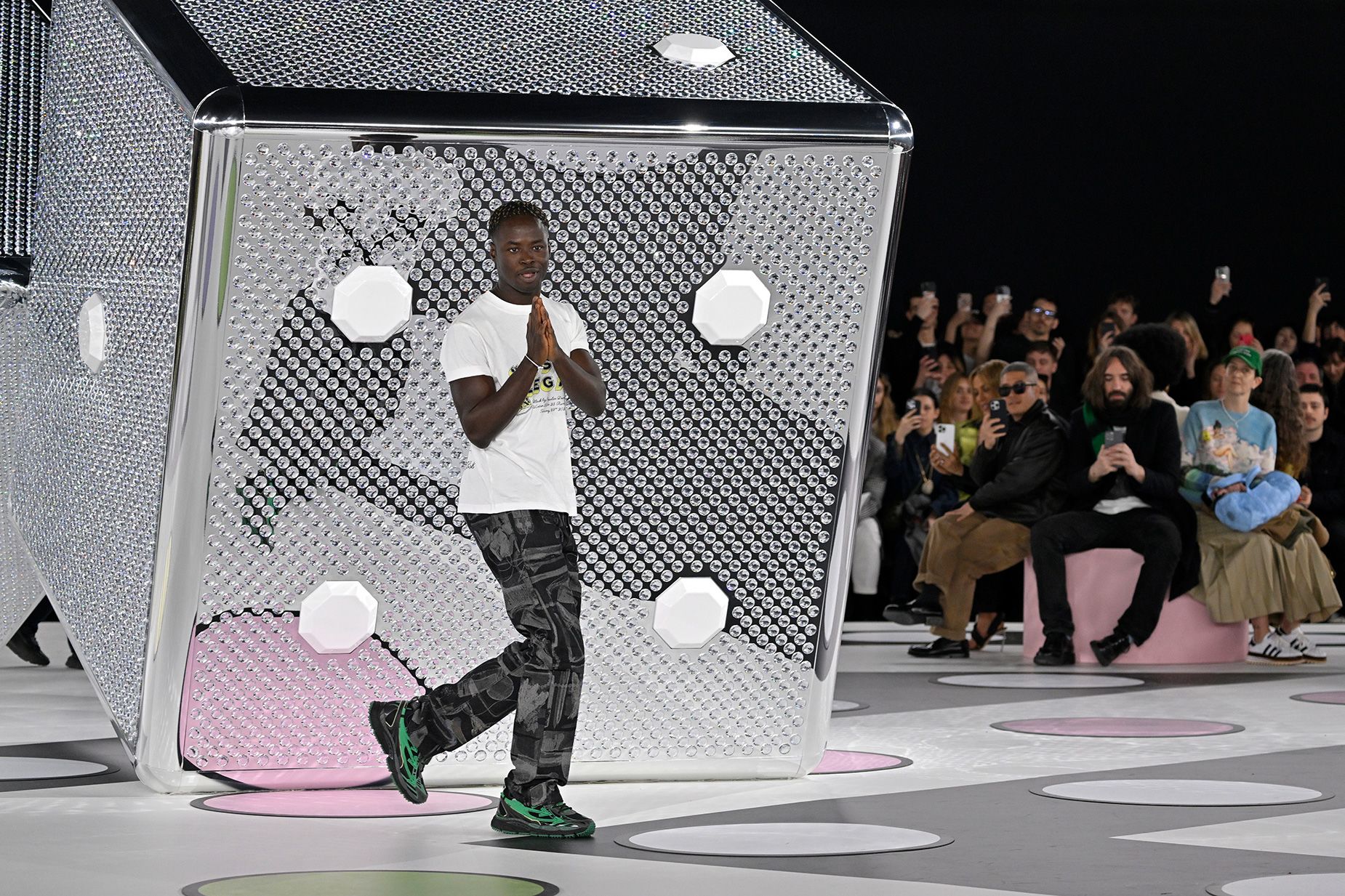Editor’s Note: CNN Style is one of the official media partners of Paris Fashion Week. See all coverage here.
Paris
CNN
—
Unscathed by the PETA protesters who disrupted her show, Victoria Beckham closed out the fifth day of Paris Fashion Week at the lavish Salomon de Rothschild Hotel on Friday night.
Her appearance before a front row filled with her family, designer Simon Porte Jacquemus, Anna Wintour and former French Vogue editor Carine Roitfeld — on crutches, as she reportedly injured her foot a few weeks earlier while working out — marked just the latest show by a British designer in Paris. The destination is proving to be something of a home-from-home for the fashion pack from across the Channel.
At Carven, Louise Trotter, former creative director for Lacoste, presented her first collection for the French heritage house. Irish-born, Central-Saint Martins-trained Seán McGirr showed his debut for Alexander McQueen, succeeding Sarah Burton. And London-based Ibrahim Kamara, editor-in-chief of “Dazed & Confused” magazine, also showcased his creations as the head of Off-White after a break following founder Virgil Abloh’s death.

Over at Nina Ricci, Anglo-American designer Harris Reed — who had shown his personal line in London earlier in the season — presented a collection that combined “a fine-art approach with Paris’s classical way of doing things,” he told CNN, adding that he hoped to “push the envelope (…) on inclusive bodies and sexualities… I’ve never been someone who just wanted to make beautiful clothes.”
Paris Fashion Week has always centered designers from around the world, offering a creative vision of French chic from an outsider perspective, from German designer Karl Lagerfeld to Japanese creatives including Yohji Yamamoto.
But perhaps its most historical cultural dialogue is with Great Britain. In the 19th century, English couturier Charles Worth chose Paris to establish his approach to luxury, and the system of custom-made clothing defining fashion as we know of it today, earning him the nickname of “father of haute couture.”
Almost a century later, in the 1990s, a long list of British designers brought a subversive flair to Paris’ fashion scene: Stella McCartney was appointed creative director of Chloé in 1997, succeeding Lagerfeld; John Galliano was head of Dior from 1996 to 2011, the same year Alexander McQueen took over at Givenchy; while Phoebe Philo was made creative director of Chloé in 2001. A few years later, Kim Jones joined Louis Vuitton in 2011 and Dior Men in 2018. (British fashion houses including Vivienne Westwood and Paul Smith also relocated to Paris at different stages of their careers.)
Today, in a post-Brexit and post-Covid world, keeping this creative dialogue up has become more challenging. Funding and exporting has become more complex due to revised import regulations, and working with stockists and ateliers throughout Europe is also more difficult, as Serge Carreira from the Fédération de la Haute Couture et de la Mode explained.
“London is a scene of revelations, where one puts down creative (roots), whereas Paris is a destination once the brand is established, to reach a more global audience,” Carreira told CNN. “This dynamic isn’t new but Paris as a next step in a British designer’s career might feel like a more amplified move.”

Yet if the amount of shows put on in London continue shrinking, and if the opposite continues happening at Paris Fashion Week (this last edition featured over 100 shows during a sprawling nine-day event), London might end up feeding the cultural fashion dialogue in different ways.
As Melody Thomas, professor in fashion criticism at Parsons Paris and author of “La Mode est Politique” told CNN, “another form of avant-garde is emerging, with off-calendar British brands such as Corteiz pointing, perhaps, to a generation that doesn’t want dream of big runways, but prefers creative drops, collaborations, capsules… Questioning the fashion system at large.”
Some would say it’s about time, too.


